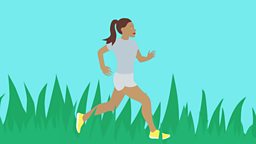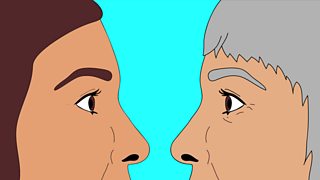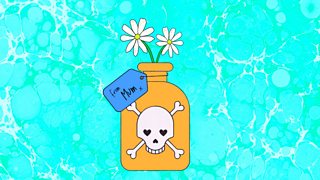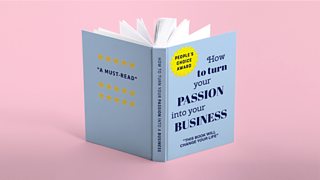'Saying ‘Let’s go for a walk’ can be an absolute lifeline’: Why sport changed my life

Ahead of the Woman’s Hour Power List 2023: Women in Sport reveal, Anita Rani spoke to two women about how sport and getting active helped them through difficult times.
Hayley Compton turned to sport to help her through the grief after her daughter Liliana was stillborn in April 2020. And Jessica Morgan was encouraged to start running by her dad to help her deal with the trauma of being sexually assaulted.
Keep reading for their stories…
‘I needed that break to make me feel like I was normal’
“I had this baby bump, and I had no baby,” says Hayley Compton. “Every time I looked down at my body, I was reminded of the fact that although I had gone through this pregnancy, I didn't have a baby at the end of it. So I needed to do something to make that better.
“When you have a stillborn baby, something really strange happens to you. Because people don't want to upset you, they don't say anything to you at all. They kind of avoid you. You become this really frightening person that people avoid, and that's on top of your grief.”
‘I was running around in the dark, getting covered in mud. That's what I needed’
“My friend used to be the captain of her rugby team and she said: ‘Why don't you come with me to training? We're not doing any contact because of COVID. We're not even picking up rugby balls. It's just fitness.’ That's how it started with me,” says Hayley.
“Anyone that's going through grief, or that has been through grief, knows that it’s absolutely all consuming. It feels like it's suffocating you. Although I had my friends and family around me and everybody was supportive, I needed a break. I needed to stop what I was doing and make my brain go somewhere else.
“She would pick me up and I would cry in the car until I got on the pitch. Then I’d have to make my focus change from my grief to learning something new, where I was running around in the dark, getting covered in mud. And being able to take out your anger, it works wonders. Being able to tackle someone, run at them, tackle them, scream… That's what I needed. I needed that break to make me feel like I was normal, that I was accepted.”

‘I've had this incredible journey of reclaiming my body through sport’
“I became a bit of a recluse after my sexual assault”, says Jessica Morgan. “It was my dad who invited me to go running and to the gym, essentially to get me out of the house. And it really changed my life. I feel like I've had this incredible journey of reclaiming my body through sport and I think that's a powerful thing.
“I ended up joining running clubs and running marathons, which I never thought I could do. But it really boiled down to testing what my body - and I mean my body, the body that I own, that someone can't take away from me - can do. I really surprised myself. Every time I have a low moment, I look back on it and think: Wow, look at what I've achieved and what I did to get myself out of a really depressive stage in my life.”
‘The relief you feel when someone says ‘Let’s go for a walk’ can be an absolute lifeline'
“When you're going through any kind of trauma, you can get stuck in your head and it can be very isolating,” says Jessica. “Sometimes you don't want to talk to other people about it because you're scared of burdening them with your issues.
“It's not always easy to work out if someone's down or isolating themselves. As someone who's been there, the relief that you feel when someone says: ‘Let's go for a walk,’ or ‘Let's go to the gym’, can be an absolute lifeline. There's so much power in that.”

‘There’s strength in community too’
“The rugby girls always made me feel accepted. Every patiently explained drill that they did for me, or every pat on the back or word of encouragement, it all means something,” says Hayley. “They didn't necessarily know what I was going through at the time, but they just took me in their arms physically, when we could after COVID, but also just mentally as well. They lifted me up and made me feel like I was part of something.
“I remember the moment that I thought: 'I'm going to be alright.' We played a rugby tournament and we didn't win but I remember after that day, I thought: 'Do you know what, I can feel happiness again. That was the moment for me where I thought this could make me better.”
'The outside is free. Go outside, take a walk'
“I really encourage anyone to get outside, even if it's for 10 minutes,” says Jessica. “I know that there are some days where you can't get out of bed or you can't leave the house and it's miserable. But outside is free. Go outside, take a walk. You'll be so surprised at how great those endorphins are. You'll be bouncing off the walls.”
Listen back to the full interview with Hayley Compton and Jessica Morgan on ´óÏó´«Ã½ Sounds – it's the episode from 16 February. Join the conversation on and @bbcwomanshour.




